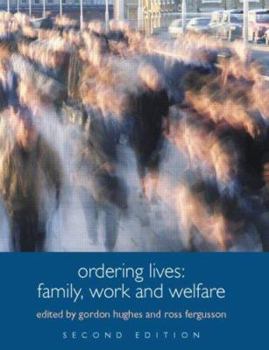Ordering Lives: Family, Work and Welfare
Taking as its focus three familiar and profoundly influential social institutions, the family, work and welfare, this accessible and exciting text looks at their role in maintaining social order and promoting social change in Britain from the 1950's to the beginning of the twenty first century. It shows how everyday life within these institutions is marked by the exercise of power and resistance and it charts the ways in which wider social change has affected these processes.
Ordering Lives: Family, Work and Welfare engages with some of the most pressing issues affecting our society in a lively yet academically rigorous manner. At the same time, it offers students of the social sciences a crucial first introduction to the way that theory is used in social science explanations of social relations and institutional arrangements. This is a key introductory text for all students beginning study in sociology, social policy or general social sciences. Does it any longer make sense to talk about a welfare state in today's UK?Format:Paperback
Language:English
ISBN:0415329728
ISBN13:9780415329729
Release Date:August 2004
Publisher:Routledge
Length:192 Pages
Weight:1.05 lbs.
Dimensions:0.4" x 7.5" x 9.5"
Customer Reviews
0 rating





